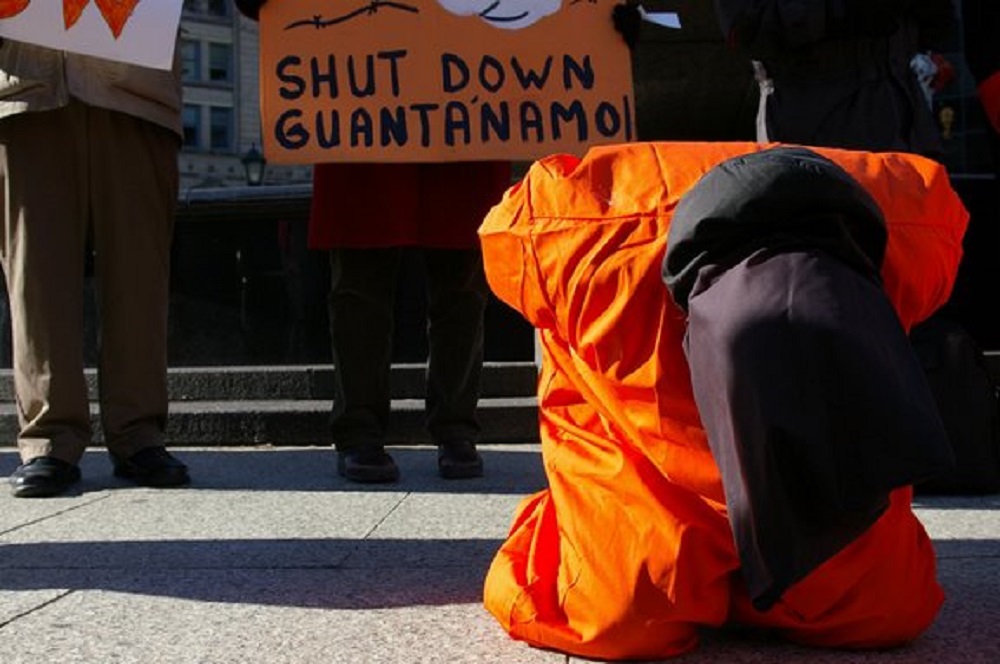Hypocrisy and the World Court
Two substantial messages have been sent by the recent ruling of the International Court of Justice (ICJ) at The Hague. The first is that Israel has no right to determine how it should defend itself against terror. The second is that Israelis are never seen as victims. Most dismaying was the fact that all five judges from the European Union states (Britain, France, Germany, the Netherlands and Slovakia) went along with the majority. If ever there was a signal sent from the European community suggesting that it would be happier if Israel simply ceased to exist, this ruling was that signal.
The decision of the ICJ validates Palestinian suicide bombers and, no doubt, will be capitalized on by Arafat and the terrorist groups stalking the West Bank and Gaza. There are dozens of barriers in areas of conflict the world over, but only the Israeli barrier (which was built as a calculated response to terrorism) interests the ICJ.
The opinion sweepingly declared that “the court, from the material available to it, is not convinced (italics added) that the specific course Israel has chosen for the wall was necessary to attain its security objectives” and that “the route cannot be justified by military exigencies or by the requirements of national security.” Tell that to the families of a thousand dead Israelis who crossed paths with Palestinian suicide bombers.
–break–
Israel contended that the barrier was justified by its “inherent right to self-defense,” as permitted by the UN charter and various UN Security Council resolutions. The ICJ, however, stated that the right of self-defense applies only “in the case of an armed attack by one state against another state,” which evidently excludes Palestinian terrorists. Thus the court held that Israel’s assertion of self-defense “has no relevance in this case.” That same chilling logic would mean that the United States (and other countries) could not fully exercise the right of self-defense against al Qaeda terrorists, since they do not represent a state any more than does Hamas. Israel finally finds a way to stop terrorism, and the ICJ rules it illegal in a 64-page opinion in which the word “terrorism†never appears (except when citing Israeli claims).
The conclusion of the ICJ might have some credibility if the court had actually compared the details of the route with Israel’s objectives – as Israel’s own Supreme Court has done twice when ordering portions of the barrier to be relocated to alleviate hardships to Palestinians. But that would have required an analysis of Israel’s security needs, which the United Nations court chose to ignore.
Not that one should be surprised. After all, what else is to be expected from the most corrupt bureaucracy on earth – a world body dominated by dictators and despots, that selects Libya to chair its Commission on Human Rights Commission and elects Sudan (in the midst of its genocide in Darfur) to a three-year term on that Commission, that turns a blind eye to the genocides in Rwanda, Sudan and Bosnia, whose international aid agencies are (in many cases) known fronts for terrorist organizations, and whose Oil-for-Food Program is on its way to becoming the worst financial scandal in history.
Moreover, the hypocrisy of the decision of the World Court is not only appalling, but flies in the face of other barriers that have been built in contested areas for far less significant reasons. These barriers were the subject of an intriguing report prepared by David Makovsky and Ben Thein of the Washington Institute for Near East Studies during the summer.
While India, Saudi Arabia, and Turkey condemned Israel at the UN General Assembly and voted to refer the Israeli barrier to the ICJ for an advisory opinion, they had themselves built barriers in areas contested by their neighbors and the World Court was silent.
India has just completed a 460-mile, twelve-foot-high barrier in the contested area of Kashmir to halt infiltrations supported by Pakistan. General Nimal Chand Vij, India’s Army chief, claimed in May 2004 that the barrier was constructed to decrease the number of attacks of invaders coming from Pakistan into India – “The number of terrorists inside Jammu and Kashmir has dropped to nearly 55 percent to 60 percent of what it was last year.†General Vij added that the barrier had stopped almost 90% of infiltration attempts, although about 3,000 militants are still waiting for their best chance to invade. Does any of this sound vaguely familiar?
Over the past two years, Saudi Arabia has built a ten-foot high, 60-mile barrier along an undefined border zone with Yemen to halt smuggling of weaponry. It is of more than passing interest that the same Saudi Arabia issued a blistering attack against the Israeli security barrier, which it has called an “internationally wrongful act†and called for the “destruction†of the barrier. Saudi Arabia claims that the disputed area is part of its territory and asserts that the move is defensive to stem the flow of Yemeni smuggling of militants and weaponry. Yemen claims that the Saudi move violates the Jeddah Treaty, which the two countries reached in 2000. In the end, the Saudi barrier is designed for defensive purposes that even the Saudi monarchs readily admit. Israelis, it seems, are not worthy of such protection.
Turkey has built a barrier in an area that Syria claims as its own. Turkey’s control of the southern province of Alexandretta (which was formerly in Syria) is accepted internationally but it remains disputed by Damascus. Turkey patrols the border area, which it calls Hatay Province. Syria, however, calls it the Sanjak of Alexandretta Province. France ceded the area to Turkey in 1939, hoping to coax the Turks away from Nazi Germany. Justifying its move, France cited a freshly formed local parliamentary vote of the new state of Hatay to join Turkey. However, the move created disturbances in Syria. Syrian maps still show the region as part of Syria. Hence, Turkey constructed a barrier in the disputed area. Also, since the late 1980s, Turkey has fenced and mined almost 500 miles of other parts of its border that are not disputed by Syria because of infiltration of Kurdish insurgents.
All this represents more than simple hypocrisy. The ruling calls into question the broader UN capacity to contribute to any serious international effort against international terrorism. In the 21st century, there is a dangerous inclination to transfer the security of democratic nations to international bodies that have agendas that often run contrary to the best interests of these democracies. The effort to make American foreign policy subject to the whims of the UN (the largest assembly of anti-democratic forces ever assembled), or the effort to transfer existential threats to Israel’s security to a world legal body comprised of nations dedicated to her destruction represents the height of folly and a dangerous precedent for the free world.
Israel has long since learned that the proposition of “winning the hearts and minds†of the Arab Muslim world was based upon the fallacy that the Arab Muslim world was prepared (at some point) to reciprocate. In rejecting the decision of the World Court, Israel has acknowledged that its survival will never be dependent upon the will of others. To Israelis and to those of the free world who understand the real message of the ICJ, it is important to restate the words of Israeli novelist and peace activist Amos Oz who once observed that before the Holocaust, his family in Europe heard the world say “Jews to Palestine.” Today, the world says “Jews out of Palestine.” The message is: “Don’t be here and don’t be there. Just don’t be.”
Perhaps the World Court should learn from the decision of the Israeli Supreme Court that only a week before had considered the same issue. In a most honorable decision that took into account the security needs of Israel and the humanitarian sacrifices the barrier caused to certain Palestinians (who were unreasonably separated from their land), the Court ruled: “Our task is difficult. We are members of Israeli society. Although we are sometimes in an ivory tower, that tower is in the heart of Jerusalem, which is not infrequently struck by ruthless terror. . . . As any other Israelis, we, too, recognize the need to defend the country and its citizens against the wounds inflicted by terror. . . . But we are judges. When we sit in judgment, we are subject to judgment. We act according to our best conscience and understanding….”This is the destiny of a democracy: She does not see all means as acceptable, and the ways of her enemies are not always open before her. A democracy must sometimes fight with one arm tied behind her back. Even so, a democracy has the upper hand. The rule of law and individual liberties constitute an important aspect of her security stance. At the end of the day, they strengthen her spirit and this strength allows her to overcome her difficulties.”
As Mort Zuckerman has noted in US News and World Report (August 2, 2004)….it has been said that if Israel is 10 percent more moral, it will be a light unto the nations; if it is 25 percent more moral, it will bring the Messiah; if it is 50 percent more moral, it will be dead. The Israeli High Court of Justice’s decision brings a light unto the nations of the world. The International Court of Justice’s advisory opinion would produce nothing but more death.



